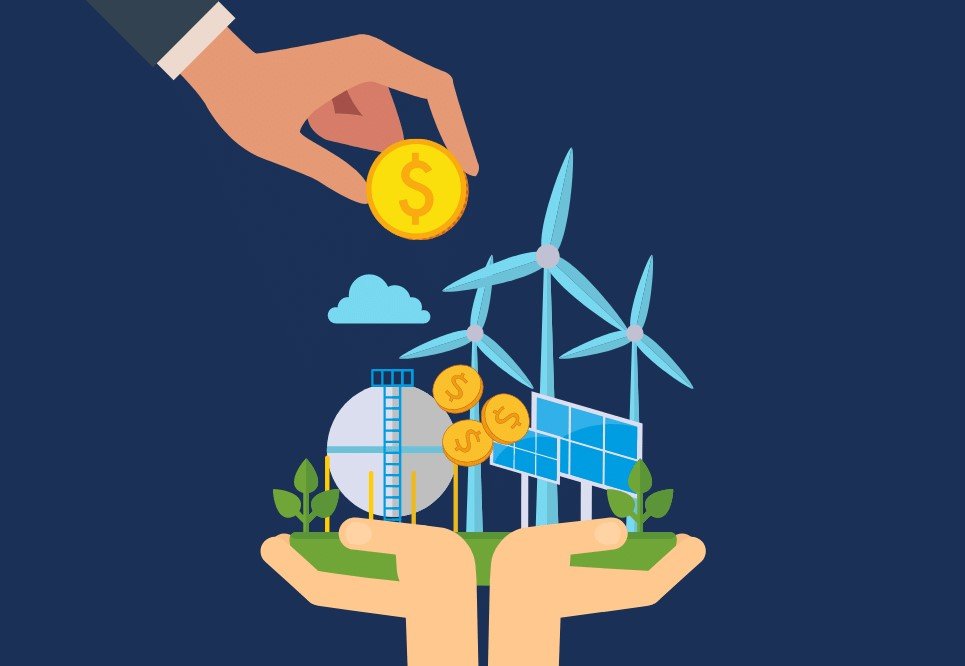Treasury Secretary Janet Yellen announced a significant surge in clean energy investments across regions historically dependent on fossil fuels.
Treasury Secretary Janet Yellen announced a significant surge in clean energy investments across regions historically dependent on fossil fuels, attributing the remarkable uptick to tax incentives under the Biden administration. Yellen revealed that these investments have more than doubled to an impressive $4.5 billion per month, propelled by targeted tax credits aimed at revitalizing such communities.
Speaking at an event in central Kentucky, Yellen referenced Treasury Department research, which utilized data from the Rhodium Group, demonstrating the substantial increase in clean energy investment. The data revealed that in addition to the surge in fossil fuel-reliant regions, clean energy investment in other communities has risen to $3.5 billion per month, marking a notable $1 billion increase. These developments are directly linked to the incentives outlined in the 2022 Inflation Reduction Act (IRA).
Yellen’s visit to Kentucky, a predominantly Republican state, underscores the administration’s efforts to spotlight and support states diversifying their economies. Despite political leanings, the Biden administration remains committed to promoting sustainable economic growth and job creation.
“We’ve seen investments grow significantly. Companies have announced almost $650 billion in investments in clean energy and manufacturing across the country since the start of the administration,” stated Yellen, emphasizing the magnitude of the economic shift.
One of the focal points of Yellen’s visit was Advanced Nano Products, a South Korean-owned battery materials manufacturer. The company has invested $49 million in a new factory in Elizabethtown, Kentucky, expected to employ approximately 100 workers upon commencement of production in May.
This facility will play a crucial role in supplying carbon nanomaterials to the $5.8 billion BlueOval SK battery manufacturing complex, a joint venture between Ford Motor Co. and South Korea’s SK Group. The BlueOval SK complex, located a few miles south of Elizabethtown, is anticipated to create over 5,000 jobs once operational.
In addition to Advanced Nano Products, Japan’s AESC is underway with the construction of a $2 billion battery factory in Bowling Green, Kentucky, set to employ 2,000 individuals. These endeavors underscore the attractiveness of the IRA clean energy manufacturing tax credits, which offer up to 30% of investment costs and provide a 10% bonus for projects located in historically fossil fuel-dependent or economically disadvantaged communities.
Moreover, businesses in these areas stand to benefit from consumer EV tax credits of up to $7,500, further incentivizing investment in sustainable technologies.
Despite Kentucky’s historical reliance on coal production, the state has emerged as a frontrunner in attracting EV-related investments, securing over $11.6 billion in funding. This surge is partly attributed to Kentucky’s strategic location within the Mid-South auto manufacturing belt, stretching from Georgia to Texas. The BlueOval SK venture, in particular, has received a substantial boost from a $9.2 billion Department of Energy loan.
However, these investments have encountered challenges, including a slowdown in U.S. EV sales and Ford’s decision to pause $12 billion in EV investments last year. Yellen acknowledged these hurdles but remained optimistic about the future of EV adoption in the United States. She highlighted the importance of continued federal support and infrastructure development in driving consumer demand and lowering EV costs.
Looking ahead, Yellen affirmed the Treasury’s commitment to fostering investment in communities with high poverty rates, urging leaders and businesses in over 150 U.S. cities to capitalize on tax incentives for sustainable economic development. With a steadfast focus on clean energy and manufacturing, the Biden administration aims to usher in a new era of economic prosperity while tackling climate change head-on.
